Publications
Articles, publications, books, tools and multimedia features from the U.S. Institute of Peace provide the latest news, analysis, research findings, practitioner guides and reports, all related to the conflict zones and issues that are at the center of the Institute’s work to prevent and reduce violent conflict.
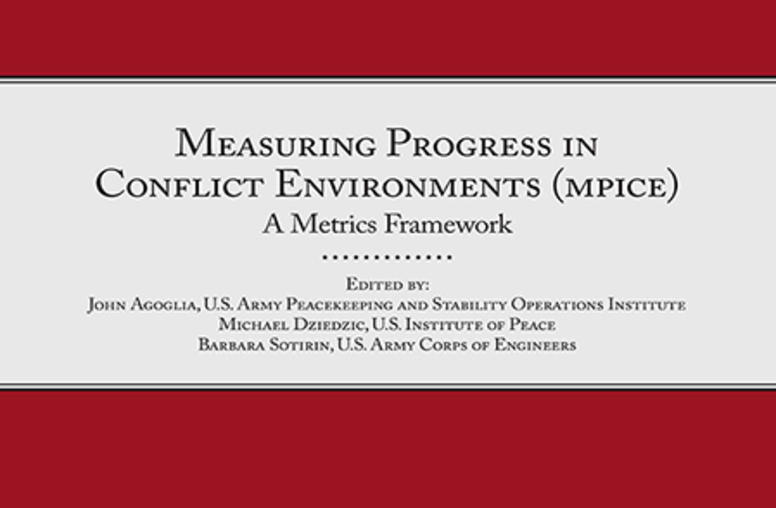
Measuring Progress in Conflict Environments (MPICE)
The primary objective of the Measuring Progress in Conflict Environments (MPICE, pronounced M-Peace) project is to provide a comprehensive capability for measuring progress during stabilization and reconstruction operations for subsequent integrated interagency and intergovernmental use. MPICE enables policymakers to establish a baseline before intervention and track progress toward stability and, ultimately, self-sustaining peace. The intention is to contribute to establishing realistic goal...
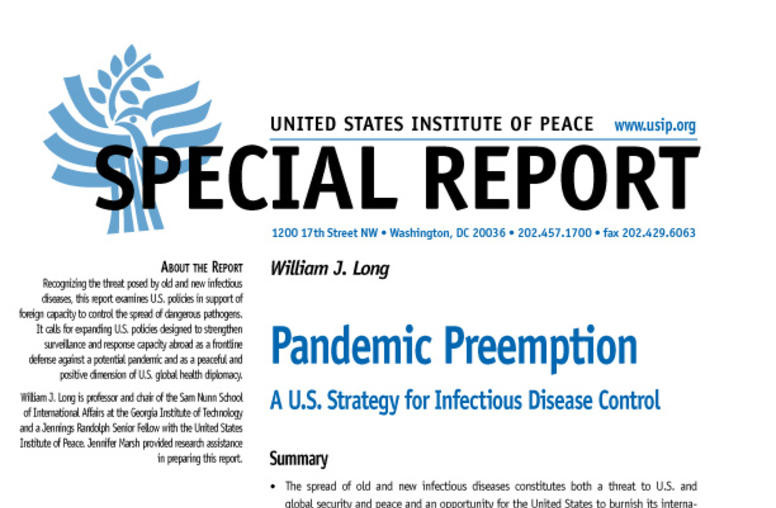
Pandemic Preemption
The spread of old and new infectious diseases constitutes both a threat to U.S. and global security and peace and an opportunity for the United States to burnish its international image through strengthening foreign capacity in infectious disease surveillance and response.
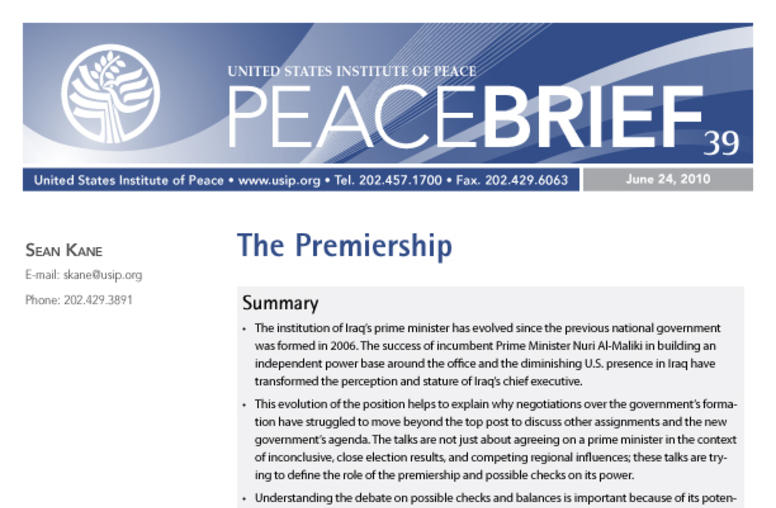
The Premiership
The institution of Iraq's prime minister has evolved since the previous national government was formed in 2006. The success of incumbent Prime Minister Nuri Al-Maliki in building an independent power base around the office and the diminishing U.S. presence in Iraq have transformed the perception and stature of Iraq's chief executive.
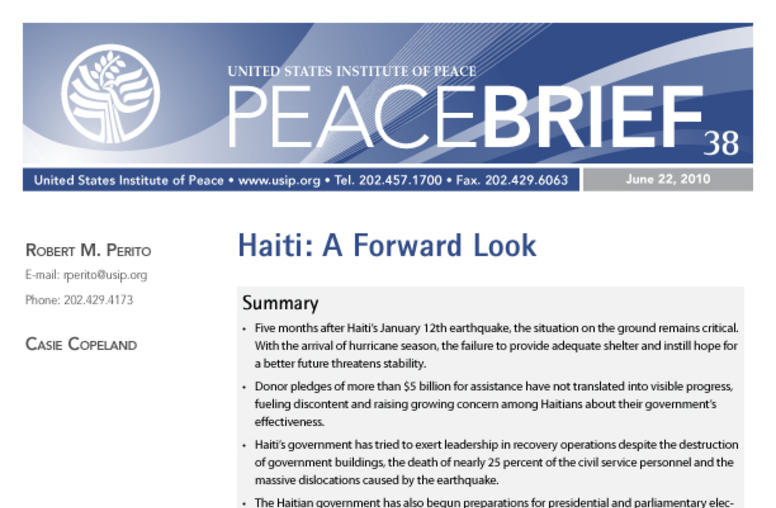
Haiti: A Forward Look
Five months after Haiti’s January 12th earthquake, the situation on the ground remains critical. With the arrival of hurricane season, the failure to provide adequate shelter and instill hope for a better future threatens stability.
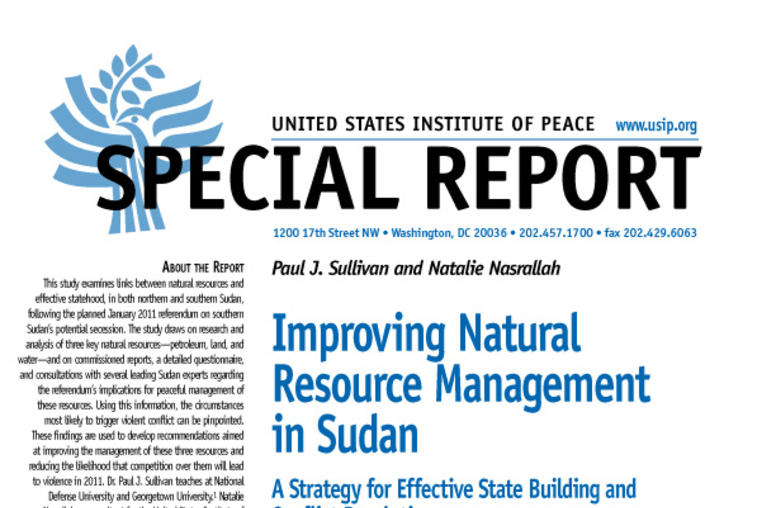
Improving Natural Resource Management in Sudan
Most experts view secession as the most likely outcome of the 2011 referendum on southern Sudan's potential secession. While this scenario may lead to some stability in the long run, effective secession immediately after the referendum may prove difficult.
Constitution Making, Peacebuilding, and National Reconciliation
USIP's advisory work on constitution making is focused on providing options to design and conduct participatory, inclusive, transparent, and nationally owned constitution making processes that enjoy legitimacy and promote national dialogue, reconciliation, and a consensual political community.
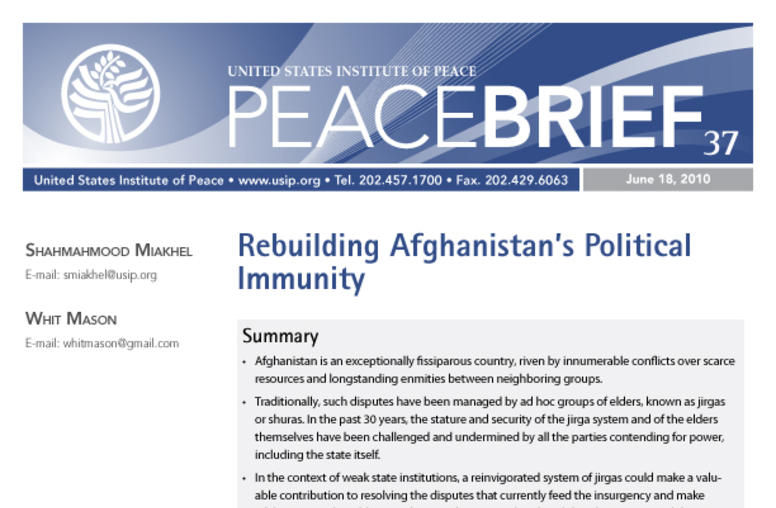
Rebuilding Afghanistan's Political Immunity
Afghanistan is an exceptionally fissiparous country, riven by innumerable conflicts over scarce resources and longstanding enmities between neighboring groups. Traditionally, such disputes have been managed by ad hoc groups of elders, known as jirgas or shuras. In the past 30 years, the stature and security of the jirga system and of the elders themselves have been challenged and undermined by all the parties contending for power, including the state itself.
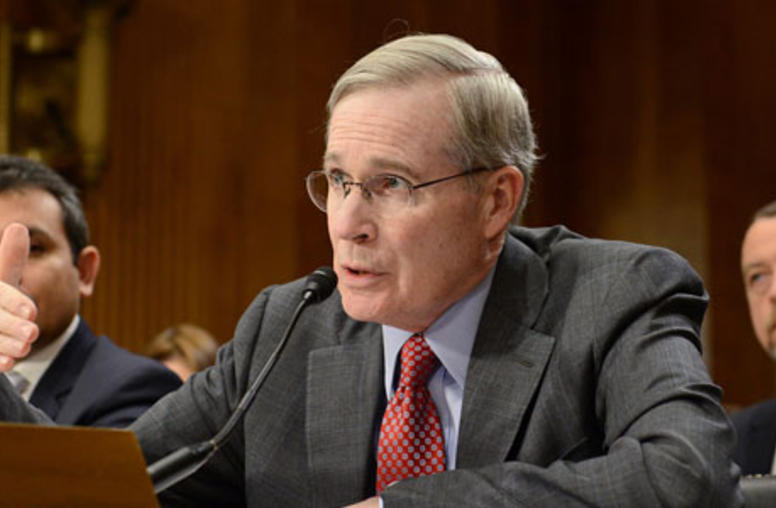
Stephen J. Hadley Testifies on the New START Treaty
Stephen J. Hadley, senior adviser for international affairs, testified before the Senate Committee on Foreign Relations on the new START Treaty on June 10, 2010.
On the Issues: Iran Sanctions
The United Nations Security Council on June 9 voted to impose a fourth round of sanctions on Iran, targeting conventional arms and the finances of 40 Iranian companies. The U.N. Security Council decision was not unanimous as two of the 15 nations on the council -- Brazil and Turkey – voted against the measure. Lebanon abstained. In an update to a May 20 “On the Issues,” USIP experts Robin Wright, Dan Brumberg and George Lopez provide different views on the U.N. vote and whether these sanction...
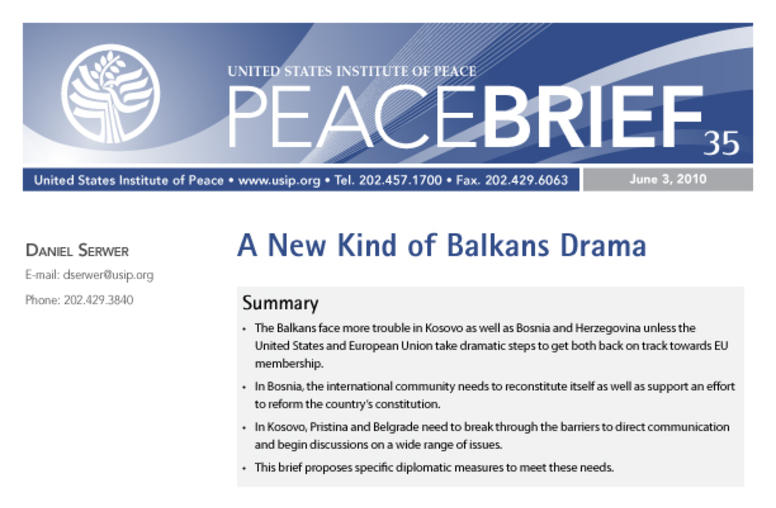
A New Kind of Balkans Drama
The Balkans face more trouble in Kosovo as well as Bosnia and Herzegovina unless the United States and European Union take dramatic steps to get both back on track toward EU membership.